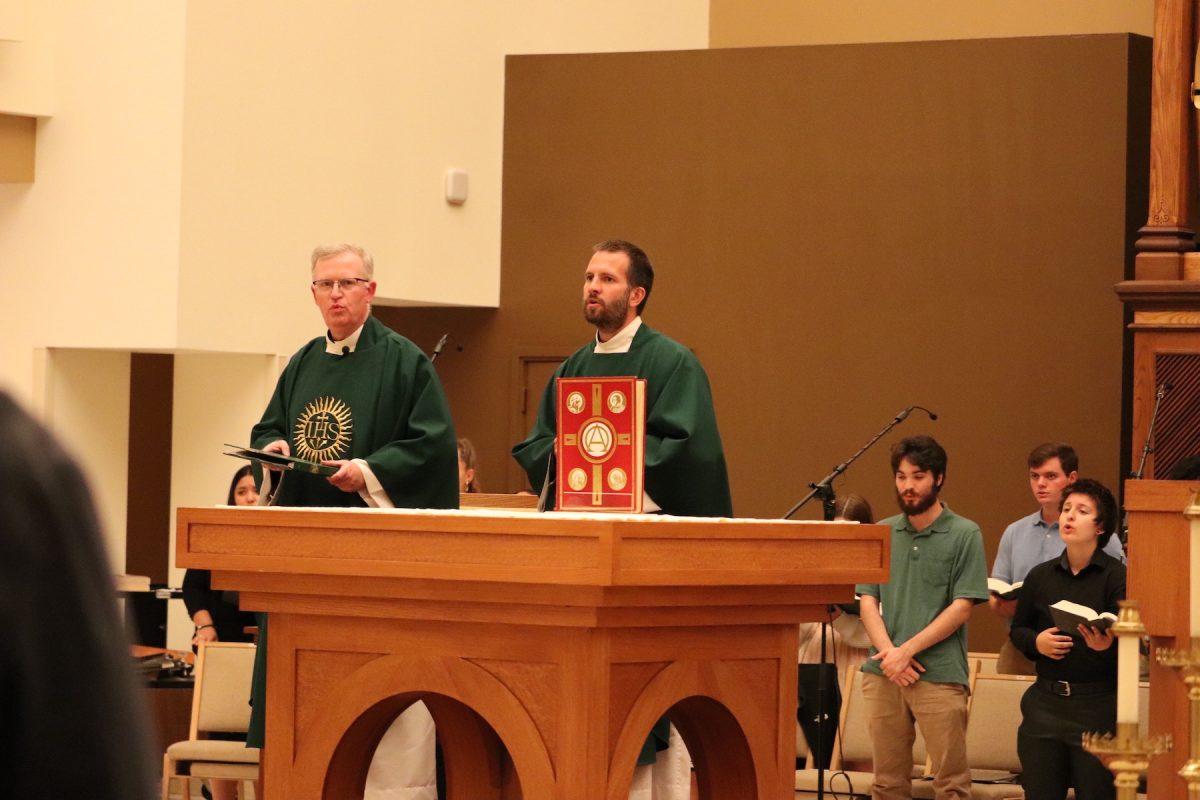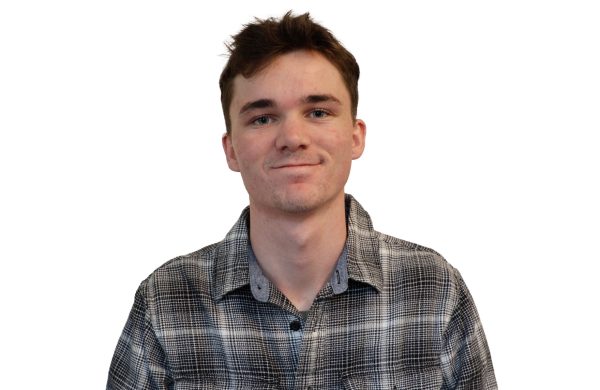A Jesuit priest who works with migrants on the U.S.-Mexico border led the 7 p.m. mass on Sept. 17 at the Chapel of Saint Joseph.
In his homily, Brian Strassburger, S.J., talked about his daily experiences with the migrants, including his conversations with unaccompanied minors traveling from as far as South America. Many migrants hitchhike and walk many miles through severe conditions, including passing through the Darién Gap, a dangerous migration route on the border between Colombia and Panama.
“I cannot enter their shoes when the migrant has made that journey,” Strassburger said. “But I can sit next to them and hear them out, hear them talk about their country and the things that have been really bad. I could talk about their hopes and dreams or their sources of despair and discouragement.”
Since being ordained in 2021, Strassburger said he has led a ministry in Brownsville, Texas, worked as editor-in-chief of The Jesuit Post and co-hosts “The Jesuit Border Podcast.” Rev. Daniel Flores, bishop of the Catholic diocese of Brownsville, moved Strassburger and other priests into a home on the U.S. Mexico border, and instructed them to “read the reality” of the conditions of the border between Brownsville, Matamoros and Reynosa. Their response was to accompany people.
Strassburger emphasized both during and after his homily that he sees countless people living under tents and shelters in heavily impoverished communities in Reynosa and Matamoros. These cities are largely controlled by cartels, with increasingly high rates of kidnapping. Hopeful migrants usually wait two to three months to hear back from the U.S. government about their migrancy approval through a phone application called CBP One.
“You may have heard someone say something about an open border,” Strassburger said. “As someone who lives on the border, I can assure you the border is not open.”
Strassburger said that he has seen profound importance in his work, saying mass for the Catholic majority of migrants in Brownsville, Reynosa and Matamoros.
“At the end of the day, I had to ask myself, what can I bring?” Strassburger said. “I can bring spiritual care and attention, and I see how valuable that is. It’s just as needed as the same table next to humanitarian aid, next to housing, next to medical care, next to legal care. Often it’s the one that is least remembered, but what I’ve seen and learned from this experience is how vital and crucial it is.”
Strassburger pointed out in a conversation after his homily that many migrants endure treacherous journeys from far away places, and simply listening to people’s experiences can have substantially positive effects on those who are struggling.
“I feel like I always need the reminder that accompaniment matters,” said Tinamarie Stolz, campus minister, who attended the mass. “I think it’s something that’s very, very overlooked in the world. So that was a nice moment of consolation, a nice reminder.”
Following the mass, Strassburger held an open conversation with students in Wolfington Hall.
Meg Thompson ’24, who participated in that conversation, said she appreciated Strassberger’s Jesuit outlook on migration issues at the border.
“It’s just cool to hear his opinion because obviously, [the border] has become something that’s very political, but I think it’s important to maintain a spiritual perspective,” Thompson said.















































